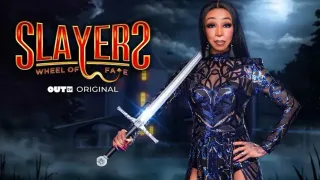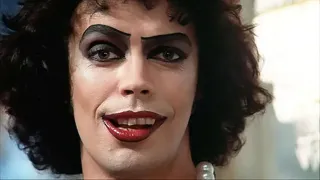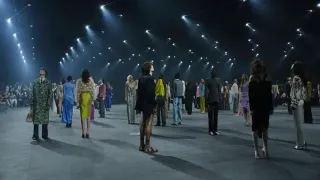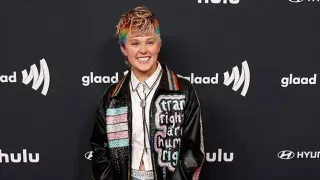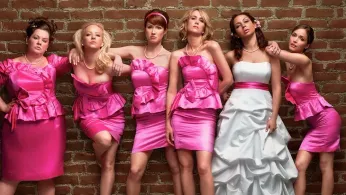
5 hours ago
Kristen Wiig Thought "Bridesmaids" Was a Flop "Well, We Tried"
READ TIME: 3 MIN.
In a recent appearance on Amy Poehler’s "Good Hang" podcast, Kristen Wiig shared a candid memory that surprised fans of the iconic 2011 film "Bridesmaids": she and her team initially thought the movie had flopped. “I remember after opening weekend, they were like, ‘Well, we tried,’” Wiig recalled. “And we were like, ‘Sorry’” . Only later, as word of mouth spread and the box office numbers soared, did Wiig and the film’s creative team realize that "Bridesmaids" was not only a commercial success, but a cultural milestone.
"Bridesmaids" debuted in May 2011, co-written by Wiig and Annie Mumolo, and quickly distinguished itself with its irreverent humor, authentic female friendships, and unapologetic embrace of messy humanity. The film went on to gross more than $300 million globally and earned two Academy Award nominations—one for Best Original Screenplay (for Wiig and Mumolo) and another for Melissa McCarthy in Best Supporting Actress .
Yet the film’s early days were far from guaranteed: director Paul Feig revealed he felt immense pressure, with the fate of future women-led comedies seemingly riding on "Bridesmaids." “I was told for months, ‘Another movie starring women all hinges on the success of this,’” Feig recalled, highlighting the industry’s skepticism at the time . Wiig herself admitted that she was so immersed in her "Saturday Night Live" schedule during the film’s release that she didn’t realize its impact until after she had left the show. “I don’t really think I knew how well it was doing until later, until I was off the show,” she told Poehler .
For many LGBTQ+ viewers, "Bridesmaids" was more than a box office smash—it was a breath of fresh air in a landscape often dominated by heteronormative storylines and narrowly defined gender roles. The film’s ensemble cast, led by Wiig, Maya Rudolph, and Melissa McCarthy, offered a vision of friendship and womanhood that was inclusive, layered, and subversive. It challenged stereotypes and gave audiences—regardless of gender or sexuality—permission to embrace their own complexities and imperfections.
The film’s success sent a clear message to Hollywood: audiences were eager for honest, diverse, and female-driven stories. In the years since, the ripple effect of "Bridesmaids" has been visible in projects that center queer characters and creators, from "Booksmart" to "Happiest Season." Its humor, rooted in the awkward and the real, resonated with LGBTQ+ communities who have long found strength and identity in chosen family and resilience through laughter.
Amy Poehler, a longtime advocate for LGBTQ+ inclusion both on and off screen, underscored the film’s lasting impact during her conversation with Wiig. “It still remains a lot of people’s favorite comedy and it’s still a spec for what it looks like to have a bunch of women in a film together writing their own material,” Poehler said .
The journey of "Bridesmaids" from perceived flop to feminist and queer-adjacent comedy classic offers meaningful lessons for LGBTQ+ creators and consumers. Wiig’s initial doubts mirror the uncertainty faced by countless artists whose work challenges industry norms and expectations, particularly when those norms are rooted in exclusion or bias.
Wiig’s comedic instincts and willingness to push boundaries were honed during her years on "Saturday Night Live," where she learned to trust her own voice—a lesson she credits to fellow SNL alum Will Forte: “Never write for if you think someone else is going to think this is funny… Write if you think it’s funny. And I always carried that with me,” Wiig recalled . This embrace of authenticity is at the heart of "Bridesmaids" and continues to inspire LGBTQ+ comedians and storytellers to center their own experiences and perspectives.
Moreover, the film’s legacy is inseparable from the cultural shifts it helped usher in. While "Bridesmaids" may not have featured explicitly queer characters, its spirit of defiance, community, and self-acceptance aligns closely with the values celebrated during Pride and in LGBTQ+ storytelling more broadly. The film’s willingness to celebrate difference and challenge conventions paved the way for more inclusive narratives on both big and small screens.
As "Bridesmaids" celebrates its legacy in the annals of comedy and representation, the story of its almost-overlooked impact serves as a reminder that creative risks often yield the most profound rewards—not just for the artists involved, but for audiences who see themselves reflected in new and unexpected ways. Wiig’s journey from uncertainty to triumph parallels the ongoing struggle for LGBTQ+ visibility and inclusion in media.
Today, the film’s influence endures in the wave of comedies and dramas helmed by women, LGBTQ+ creators, and people of color—proof that what was once considered a gamble is now recognized as a blueprint for success. As Wiig, Poehler, and their peers continue to break barriers, their work inspires a new generation of storytellers to push for more—more honesty, more laughter, and more space for every identity on screen.
